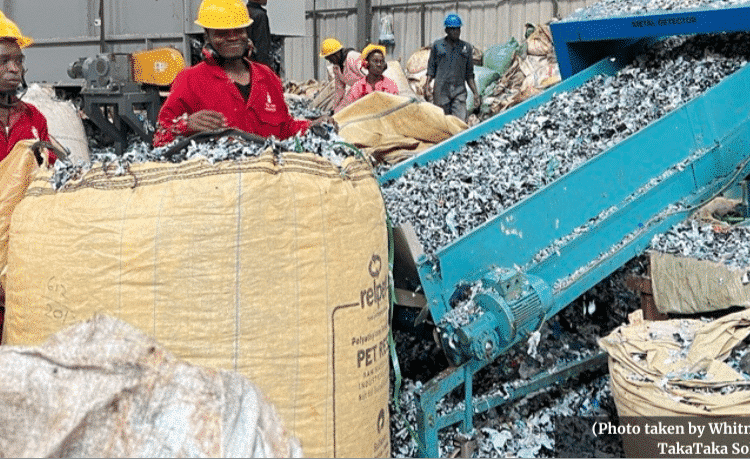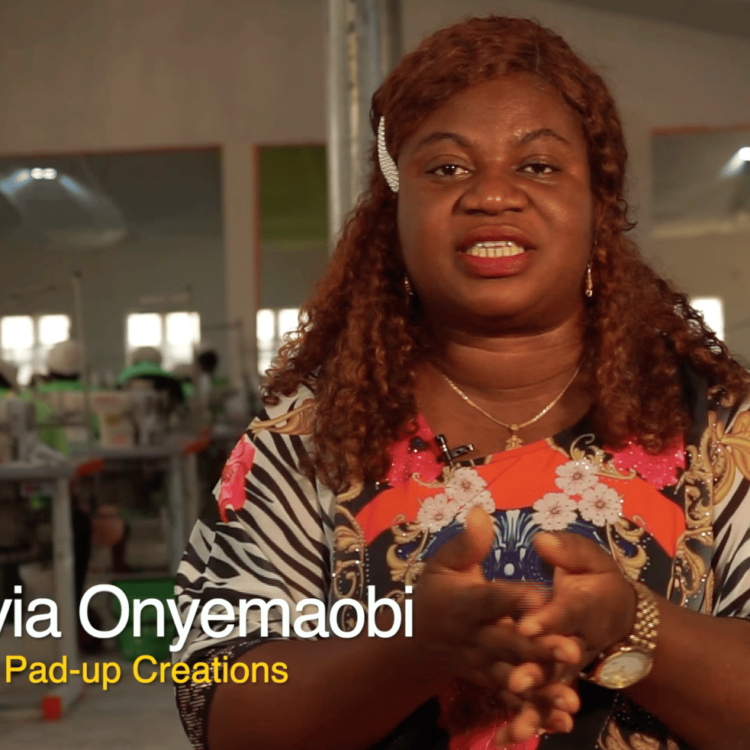
How can ICT innovations, in combination with mobile phone ownership, open up new opportunities for women entrepreneurs in a resource constrained setting like Malawi? Do ICTs spur business growth and job creation and, if so, for whom? Do they contribute to inclusive economic development, as donors are enthusiastically proclaiming? With these questions in mind Saskia Vossenberg set off to Mzuzu in the Northern Region of Malawi, where she met William Sibande, project officer of the GROW Movement Malawi (the GROW Movement operates in Uganda, Rwanda and Malawi).
The GROW Movement is a private network of international volunteer business consultants who use ICTs to build the business skills of African entrepreneurs. The outlook: local job creation and increased profitability. The concept works by matching international business consultants with entrepreneurs in Malawi to provide them with information on how to improve marketing, bookkeeping, financial planning and customer relations during 12 free one-on-one sessions via Skype, WhatsApp or telephone. GROW works in close partnership with the National Association of Business Women in Malawi (NABW) and, since it commenced in 2013, over 200 women entrepreneurs have used its services.

William in the GROW office
Making technology work in imperfect rural conditions
William shows me the dongle on his laptop that connects him to the Internet. He explains how it works. Sometimes the women enrolled in the programme come to his office in Mzuzu town to chat with the business consultant. But, usually, William travels around in his car with his laptop and dongle right to women’s homes and business locations. Power cuts are a daily reality and the Internet is more often off then on. And when it’s on, there’s not enough bandwidth, so Skype is a challenge. “Better Internet infrastructure would really help us to reach more women, especially in the rural areas.” When he can’t connect the dongle, William lets the women use WhatsApp on his own mobile phone to talk to the international business consultant.
William tells me that GROW wants to expand its consultancy services to a rural growth centre located about 45 kilometres out of town. “There are plenty of women there running businesses, but without access to business development services. In addition to a failing Internet connection, they cannot speak English, so we are now figuring out how we can overcome the language issue by using translators during the sessions.”
What strikes me is that William is constantly improvising and strategizing to make technology work in Mzuzu’s challenging local reality. Merely having the technology available and the system set up does not mean that women entrepreneurs can access it; the needed support systems often fail. Some women who use GROW do not know how to use a mobile phone or email. Or they do not own a computer and cannot make their way to GROW’s office because of the high cost of transport. Other women have demanding care responsibilities at home, cannot leave their business or are hesitant to join the programme because of fear of failure. In those cases, William brings his phone and laptop to the women to encourage them to connect with the consultants. And, if necessary, he helps by reading or writing WhatsApp messages and emails.
Making it work: sensitizing husbands and families
When a new entrepreneur enrols in the GROW programme, William visits her home to introduce himself to the husband and rest of the family. This is very important he explains: “Our culture prescribes that women should be at home, carrying out domestic chores and caring for the children. Husbands can become worried or suspicious when they find their wives talking a lot to our business consultants”. So William consciously sits down with couples to discuss what to expect from the GROW programme in order to prevent contentious marital situations, which can hamper women’s participation and even result in them dropping out. The GROW Movement recognizes that without human and social efforts to facilitate and translate technology into a particular local setting, ICT-related innovations will probably only reach those entrepreneurs who own (and know how to use) a phone or laptop, live in an urban area with proper Internet services, have access to transport, are able to read and write English, and have understanding and supportive spouses.

Sella in her shop with an employee
New skills and more profit for women entrepreneurs
How exactly do women entrepreneurs benefit from GROW? While in Mzuzu I met with women who run a variety of local businesses, including a soap factory, chicken hatchery, nursery school, stationery shop, grocery store, mining and cross-border trade. The GROW Movement measures its success by profitability and the number of jobs created. I have heard countless stories of women learning new skills that have increased their profits. For example, encouraged by William and her consultant, Pitily Tembo started visiting different neighbourhoods at set times, walking with see-through buckets on her head filled with her soap bars. This helped her tap into a large new pool of paying customers. Sella Chiume, a cross-border trader who started to market her fabrics more effectively and keep a record of her stock, learnt which items sell fast and which don’t. This helped her to manage her cash flow. Some women have created a few local jobs since using GROW, although generally informal, irregular and low-skilled piece work.
‘It keeps you going’
In addition to economic outcomes, I’ve heard stories of how enrolment in the GROW programme benefits women by making them feel encouraged and supported – not just to continue their business, but also to sensitize husbands and community members about the value of doing so ‘as a woman’. Some women run their businesses purely for survival, to secure an income or a pension. Others run their businesses to improve their quality of life or as an additional source of income to pensions or remittances. Others want to ‘stay active’ and have a social network. As one woman put it: “I’d rather be bored at my business without customers than be at home all day catering for my husband who cannot even boil an egg”.
Whatever the motivation to run a business, in a place like Mzuzu, where entrepreneurship means one step forward and ten steps back and where women entrepreneurs have to go it alone, it is encouraging to know that someone out there recognizes you as an entrepreneur and cares about your daily struggles and your business endeavours. “It keeps you going”.
Multiple challenges remain
However, reinvesting the profit into the business and securing the income of hired workers is a major struggle for these women. They face multiple challenges, which remain untouched by the GROW intervention. Women use their profits for food, school fees and home improvement. Due to extreme inflation, fuel and food prices in Malawi are high. But, if possible, part of the profit is used to keep the business running or set aside for reinvestment.
Pitily now has a new source of customers, but she is failing to produce at capacity, because a key ingredient for the production of her soap is stuck on a truck somewhere between Tanzania and Malawi. Sella knows what to stock, but cannot travel to Tanzania frequently to buy fabric because she doesn’t have enough money to pay for the transport and all the necessary bribes along the way. And, with an interest rate of up to 40%, a bank loan is not an option.
Profitability does not automatically lead to business growth
Using a frugal and inclusive strategy, GROW manages to operate at a low cost and yet deliver quality and accessible business consultancy services. Clearly, the women entrepreneurs who use GROW benefit in terms of profitability. But the women entrepreneurs I met can only do so much with the profit: they face rigid social role expectations, poor infrastructure, costly health and education services, immobility in accessing markets and inadequate business financing. These issues are, of course, outside GROW’s control. While closing the digital gender gap by providing skill building and market information by using ICTs is a valuable contribution to the entrepreneurial endeavours of women, it is not a panacea for the multiple issues they are dealing with. Increasing profitability does not automatically transform women’s entrepreneurship from a survival strategy into a strategy of business growth, or supply decent jobs. It does, however, provide valuable encouragement to women entrepreneurs who are constantly redirecting their strategies to cope with the daily challenges arising from their social and economic environments, and stretching the boundaries of their own labour and management capacities.




